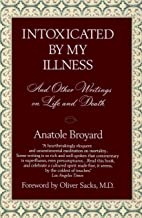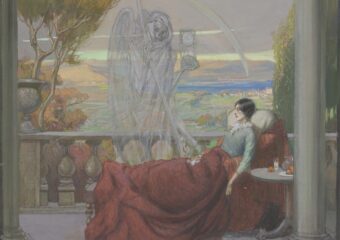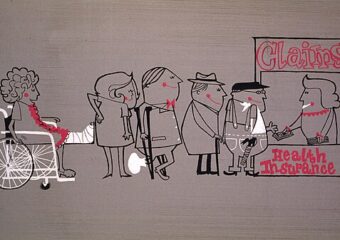Anatole Broyard
Alexandra Broyard (editor)
New York
Clarkson Potter
1992
135 pages
According to the art:
Broyard’s book is a collection of writings concerning illness and death, mostly his, and in particular, the metastatic prostate cancer that took his life at age seventy. He focuses his attention on literature and story, and considers the literature of illness, the literature for illness, and the literature of death. He tells the story of his illness, and the story of his father’s. What results is a range of subjects that at times are memoir and at times are meditations.
Synopsis:
As the subtitle foretells, Anatole Broyard’s book is a collection of writings concerning illness and death, mostly his, and in particular, the metastatic prostate cancer that took his life at age seventy. The writings were gathered, edited, and compiled by his wife, Alexandra Broyard. She took them from some of Broyard’s New York Times articles, his notes and early drafts of writings, and a talk he gave at the University of Chicago medical school. What results is a range of subjects that at times is memoir and at times are meditations.
The book begins with the first of many counterintuitive notions Broyard offers when he refers to being intoxicated by his illness. With the diagnosis, he “is filled with desire—to live, to write, to do everything. Desire itself is a kind of immortality.” (p. 4) Broyard is not just intoxicated by his illness; “I’m infatuated with my cancer.” He is not doomed as much as he is freed; “I can afford now, I said to myself, to draw conclusions.” (pp. 6-7)
Broyard does not build on his intoxication after this brief, first chapter, though he returns to the idea occasionally throughout the book. For most the most part, he focuses his attention on literature and story. He considers the literature of illness (i.e., literature featuring illness), the literature for illness (i.e., literature to enjoy during illness), and the literature of death. He tells the story of his illness, and the story of his father’s illness, which was also prostate cancer. From this hodgepodge of ideas, fancies, memories, and grievances, materializes his intention “to show people who are ill…that it’s not the end of their world as they know it, that they can go on being themselves, perhaps even more so than before.” (p. 61)
Analysis:
Broyard was a writer, literary critic, and teacher. For a time, he was an editor at The New York Times Book Review. As his wife noted in her prologue, “When Anatole learned that he was ill, he responded by talking and then by writing about his situation.” (p. xviii) His skill, talent, and experience are on display in the book. However, Broyard did not produce a logical progression of beginning, middle, and end, yet many interesting and worthy fragments are strewn about. This book is a case in which the sum of the parts is greater than the whole.
Nevertheless, some themes appear across the book. One is style—”I would advise every sick person to evolve a style…for his or her illness.” Broyard developed a style for his illness because for him, “illness is another way of meeting it on your own grounds, of making it a mere character in your narrative.” His style was to “make fun of my illness. I disparage it.” (pp. 61-62) He admired style in a dying friend and he turned against a physician who he saw as having “a lack of style.” (p. 38) In her epilogue, Alexandra Broyard said, “For Anatole, style was a critical issue in his life…a bid for immortality, his defense against the darkness.” (p. 135) To be alive at the time of death is a matter of style, Broyard insisted.
A particularly strong desire for Broyard was literature, and not necessarily medical literature, quite the opposite. “While sick people need books…to remind them of the life beyond their illness, they also need literature of their own. Misery loves company—if it’s good company.” (p. 12) By “literature of their own,” Broyard is referring to books—fiction and nonfiction—that render illness as people experience it. He cites a few classics such as Thomas Mann’s The Magic Mountain, Tolstoy’s The Death of Ivan Illych, and Stewart Alsop’s Stay of Execution. He notes how Virginia Woolf sixty years before lamented the dearth of literature about illness. Both Broyard and Woolf would likely be pleased with the abundance of literature about illness now.
Broyard also thought physicians could benefit from literature. “I don’t see any reason why doctors shouldn’t read a little poetry as part of their training. Dying or illness is a kind of poetry.” (p. 41) Broyard thinks that a physician who reads will understand his predicament better.
I would like my doctor to understand that beneath my surface cheerfulness, I feel what Ernest Becker called, ‘that panic inherent in creation’ and ‘the suction of infinity’…I would like him to know what I mean if I told him that, like Baudelaire, ‘I cultivate my hysteria with joy and terror’…He should be able to imagine the aloneness of the critically ill, a solitude as haunting as a Chirico painting…I want him to be my Virgil, leading me through my purgatory or inferno, pointing out the sights as we go.
p. 42
Broyard further thought that his physician should be “a close reader of illness and a good critic of medicine.” (p. 40) This close reader and critic is prepared to serve as a storyteller, which a physician is, “whether he wants to be or not.” (p. 53) They must listen to patients’ stories and assemble them into illness narratives for the purpose of bringing the “disconnected shocks” illness creates under control. (p. 19) Although Broyard admits that expecting physicians to become storytellers may be asking too much, Narrative Medicine—listening for the patient’s story and assembling a narrative—has since developed into an academic discipline and a growing professional practice expectation.
As a collection of writings over a period his illness compressed, many of Broyard’s insights and clever turns of phrase are at times isolated from surrounding text, but they can’t be ignored. They make this book a compilation of quotes as much as anything else. Here are some.
I’ve had eight-inch needles thrust into my belly, where I could feel them tickling my metaphysics.
p. 6
I take my imagery with my medicine.
p. 7
Illness is primarily a drama, and it should be possible to enjoy it as well as to suffer it. I see now why the Romantics were so fond of illness—the sick man sees everything as metaphor. In this phase I’m infatuated with my cancer. It stinks of revelation.
p. 7
A critical illness is like a great permission, an authorization or absolving. It’s all right for a threatened man to be romantic, even crazy, if he feels like it. All your life you think you have to hold back your craziness, but when you’re sick you can let it out in all its garish colors.
p. 23
When the cancer threatened my sexuality, my mind became erect.
p. 27
You don’t really know that you’re ill until the doctor tells you so. When he tells you you’re ill, this is not the same as giving you permission to be ill. You eke out your illness.
p. 37
I think that a doctor can keep his technical posture and still move into the human arena. The doctor can use his science as a kind of poetic vocabulary instead of using it as a piece of machinery, so that his jargon can become the jargon of a kind of poetry.
p. 44
Originally, the patient was protected by the sterility of the hospital. Only the sterility went too far: It sterilized the doctor’s thinking.
p. 55
Technical explanations flatten the story of illness. (p. 66)
p. 66
The vocabulary of death is anticlimactic. It seems that we die in clichés. (p. 75)
p. 75
Intoxicating.
Also:
In his book, Eros and Illness, David B. Morris provides a more focused and deeper exploration of desire in illness, and refers to it as “medical eros.”1 He uses Broyard’s story as an exemplar of the idea. Eros as an element of mental illness is also featured in the play, Farinelli and the King.2 My blog piece on this book is here, and on the play here.
Broyard’s counsel to physicians that they would be better at their profession having read literature was echoed in Ian McEwan’s 2001 novel, Atonement, in which one of the characters who plans to be a physician believes reading literature is essential for the fully engaged physician.3
For this was the point, surely: he would be a better doctor for having read literature. What deep readings his modified sensibility might make of human suffering, of the self-destructive folly or sheer bad luck that drive men toward ill health! Birth, death, and frailty in between. Rise and fall—this was the doctor’s business, and it was literature’s too. He was thinking of the nineteenth century novel. Broad tolerance and the long view, an inconspicuously warm heart and cool judgment; his kind of doctor would be alive to the monstrous patterns of fate, and to the vain and comic denial of the inevitable; he would press the enfeebled pulse, hear the expiring breath, feel the fevered hand begin to cool and reflect, in the manner that only literature and religion teach, on the puniness and nobility of mankind…”
p. 87
Edited by Lucy Bruell
_________________________________________________
- David B. Morris, Eros and Illness. Cambridge, MA: Harvard University Press, 2017.
- Clare van Kampen (playwright), John Dove (director). Farinelli and the King. Belasco Theater, New York, NY. Ran 17 December 2017 through 25 March 2018.
- McEwan, Ian. 2001. Atonement. New York: Anchor Books.



